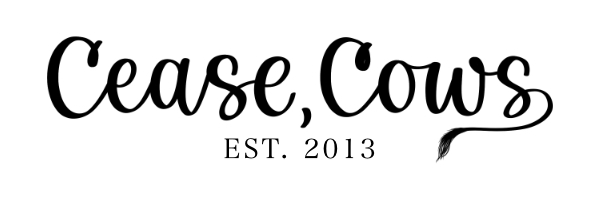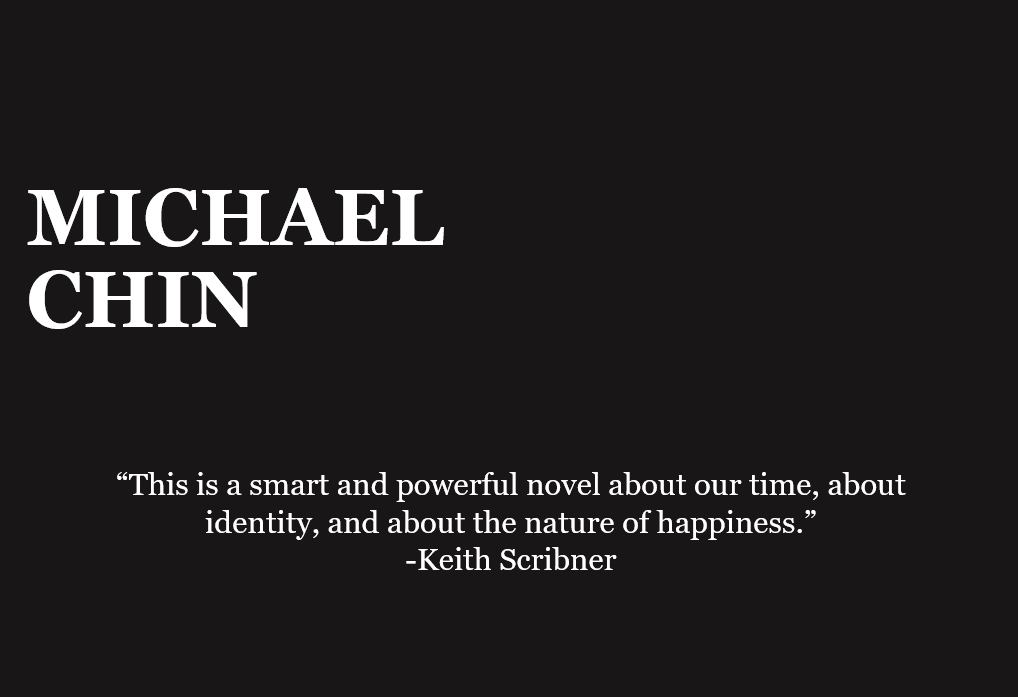Cease, Cows contributor Michael Chin is back with another book, a charming coming-of-age story set in a fictional town in upstate New York. While issues of immigration and identity are woven throughout, My Grandfather’s an Immigrant, and So is Yours addresses universal themes of family, friendship, young love, and learning how to make one’s way in an often uncooperative and challenging world. Chin’s novel should appeal to both adults looking back at their own experiences and high school students still in the thick of it.
Pick up your copy here.
Chin recently shared his thoughts with Cease, Cows.
Chuck Augello: My Grandfather’s an Immigrant, and So is Yours is the story of a Chinese American adolescent growing up in an upstate New York community. What inspired you to tell this story?
Michael Chin: While I’d maintain that a solid seventy-five percent or so of this novel is pure fiction, I won’t deny that the other twenty-five percent—which I’d loosely term autofiction—is at least equally important in why I wrote this book. The protagonist, Billy Chen, is like me in having grown up half-Chinese in a mostly white community, and a number of his experiences and considerations around identity mirror my own.
It has become a popular topic of conversation that representation matters in media, and I think it’s positive that we’re seeing a greater representation of diversity in ethnicity, race, sexuality, faith, and other dimensions of difference in literature, film, television, music, and so on. Reading about the experience of Asian Americans still represents a relatively small percentage of the literature I’ve consumed in my life. I like to think a book like this, that gets into the nuances of being half-something, half-something else, or a third-generation immigrant, would’ve spoken to my younger self, and will only prove more relevant in time as our collective culture grows more diverse and more sub-groups intermingle with each other.
CA: The treatment of immigrant populations has always been a contentious issue in the United States. How would you like your book to add to the conversation?
MC: I very rarely think of a title before I start writing a piece, but a key step in the development of this project was when My Grandfather’s an Immigrant, and So is Yours occurred to me as the name of something. Donald Trump was relatively newly elected as president and as his stance on immigration issues took center stage, pundits pointed out Trump himself was the grandson of an immigrant. Researchers started to look into other public figures, often finding similar results that vocal critics of immigrant populations didn’t necessarily have longstanding family roots in the US either.
I started to conceptualize a personal essay, rooted in my own Chinese grandfather and grandmother being immigrants. At the end of the day, though, my instincts and talents are much more geared toward the craft of fiction than non-fiction. The essay ideas wound up merging with a novel I was between drafts on, to arrive at something closer to the final book.
Ultimately, I don’t think that fiction with an explicit agenda tends to work that well, but I do hope that in grappling with issues of identity, minority status, uncomfortable historical truths, and not least of all immigration, this novel might put a more human face on some of the discussion—promoting empathy or, at the least, offering a window into the lived experience of people like myself and my family.
CA: Billy, the narrator, has a group of friends known as The Boil Crew. Tell us about them.
MC: The Boil Crew embodies male friendships as I understood them from my own youth. They’re highlighted by loyalty, mutual support, and laughter; lowlighted by occasionally encouraging poor behavior and mindsets.
More specifically, the ways in which The Boil Crew falls into a misunderstanding, in which they’re wrongly thought to be plotting violence against their school community were loosely inspired by what I saw happen to a group of my own high school classmates. To this day, I saw their friendship as almost entirely harmless, but a blur of rumors, not so far removed from the Columbine school shooting, sent school personnel and parents into a state of panic. I can only imagine the response being harsher in contemporary times, in the wake of so many more instances of mass violence, and The Boil Crew’s experience riffs off of my imagining that scenario.
CA: Billy has a long fascination with a female peer, Valerie. Why is she so important to him?
MC: As I mentioned earlier, autobiographical elements pervade this novel, and when I reflected on my own coming of age, one of the pieces I simply couldn’t avoid was the multitude of crushes I had and how integral they proved to my identity—as a matter of where I devoted my mental and emotional energy, how I presented myself, how I tried to contrive circumstances to spend time with the young women I was interested in. Billy’s infatuation with Valerie encapsulates a lot of what that was like, but also (I hope) demonstrates growth in the character for his progress into a real-life loving relationship.
CA: The setting, Shermantown, is richly drawn. Why is setting important to you as a writer?
MC: Setting is an element of storytelling I took for granted for years as a developing writer, largely rooted in an assumption that places were mostly the same and readers could intuit or follow along with the particulars essential to a given story. Life experience—including traveling more and living in different places—played a role in disabusing me of this notion, but also, there came point when I could recognize how much I was giving up in not better defining the settings for my stories.
Shermantown is a place originally, loosely based on my own hometown in Upstate New York, though over time and across stories it has evolved into its own place with more clearly defined and divergent features, like a totally fictitious old glove factory that closed down and put half the town out of work but leaves a lingering smell of leather in the air. Shermantown has become the default setting for most of my fiction that doesn’t need to happen in another place, in part because I think my default worldview tends to gravitate back home, and in part because I’ve figured out so many of the particulars of this place across a few dozen stories to the extent that I feel it’s a sound foundation to build from now.
CA: The 2016 election is included in the novel. Did you have any hesitancy in writing about such recent and highly charged history? Why did you feel it was important to include?
MC: My own end-of-high-school experience included the 2000 Presidential Election—the first national election I was politically aware enough to feel invested in and a major coming of age experience for how close the election was and how divisive everything seemed.
I can only imagine how civically engaged teenagers experienced the 2016 election, in which the divisions were deeper, the stakes quite arguably higher, and the results no less contentious. Add in social media and the now firmly cemented twenty-four-hour news cycle and I don’t know that there even is a door to close in between public discourse and private thought.
To circle back more pointedly to your question, though, I need to borrow a page from my friend, the poet Alana Folsom, who has cited poet Carolyn Forche’s idea of “social poetry.” I’m oversimplifying some really profound thinking, but the gist is that it’s personal values, thoughts, and experiences that get magnified into political concerns, and political concerns are best understood when broken back down to that personal level. Poetry—and I’d contend, all forms of literature—operate in that in-between space, and often thrive when they are simultaneously accessible and uncomfortable, pushing us into an easy-to-understand but necessarily complicated narrative that readers are left to make their own sense of.
CA: Billy’s Mom gains notoriety as a list-maker, with many of the lists filled with social rules and life advice for her son. Tell us about Billy’s relationship with his mother.
MC: The relationship between Billy and his mother is one of the more overtly fictional elements of the book. I wanted to probe the idea of a parental relationship with a digital divide. My parents and I never enjoyed the greatest communication in our relationships, and there were times when I resented that, though I’ve mostly come to peace that everyone tried (and is still trying) their best, and it is what it is. Billy’s mother brings in a number of dimensions I wanted to reckon with, including mental health and the discussion of consent in relationships, but I found some value in adding this digital divide as a variable. She doesn’t always know how to talk with Billy, but he’s reading what she writes, and that becomes its own kind of communication. Additionally, because of the collage-style structure of the novel, the list-making functionally added another mode of storytelling to fit in the book and serve the contemporary concerns at hand.
CA: We talked previously about your collection of short fiction. How did your experience differ writing this longer work, and do you have a preference between short stories and novels?
MC: Thank you very much for reading both my first story collection and my first novel! I have to say that, for me, there were marked differences. I tend to think of my greatest strength as a writer being that I’m a confident and prolific first draft writer. The flip side is that I consider my greatest weakness to be tackling revision in meaningful and important ways. I have trained myself to revise honestly and aggressively with short stories. I mostly look at them as discrete units and can reasonably call one done after the third or fourth or fifth draft, and I can typically coax myself into rounds of revision, letting the draft “cool off” in between those rounds and/or while I have a trusted friend read what I’ve got so far. By sheer size and scope, revising a novel is a much bigger undertaking. I approached each draft with big ideas about how key pieces were going to change, but I did find it very difficult to gauge when I was truly done, and ultimately had to make that call about when I was personally satisfied with the project.
CA: What’s next for Michael Chin?
MC: I have multiple book-length projects in different stages of drafting, revision, and (in one case) active submission. I can’t really guess in which order they’ll come out to the world (or, of course, if all of them will reach publication), but rest assured, I’ve got more work in the pipeline that covers a pretty wide range!
–
Chuck Augello (Contributing Editor) lives in New Jersey with his wife, dog, two cats, and several cows that refuse to cease. His work has appeared in One Story, Juked, Hobart, SmokeLong Quarterly, and other fine places. He publishes The Daily Vonnegut and contributes interviews to The Review Review.

